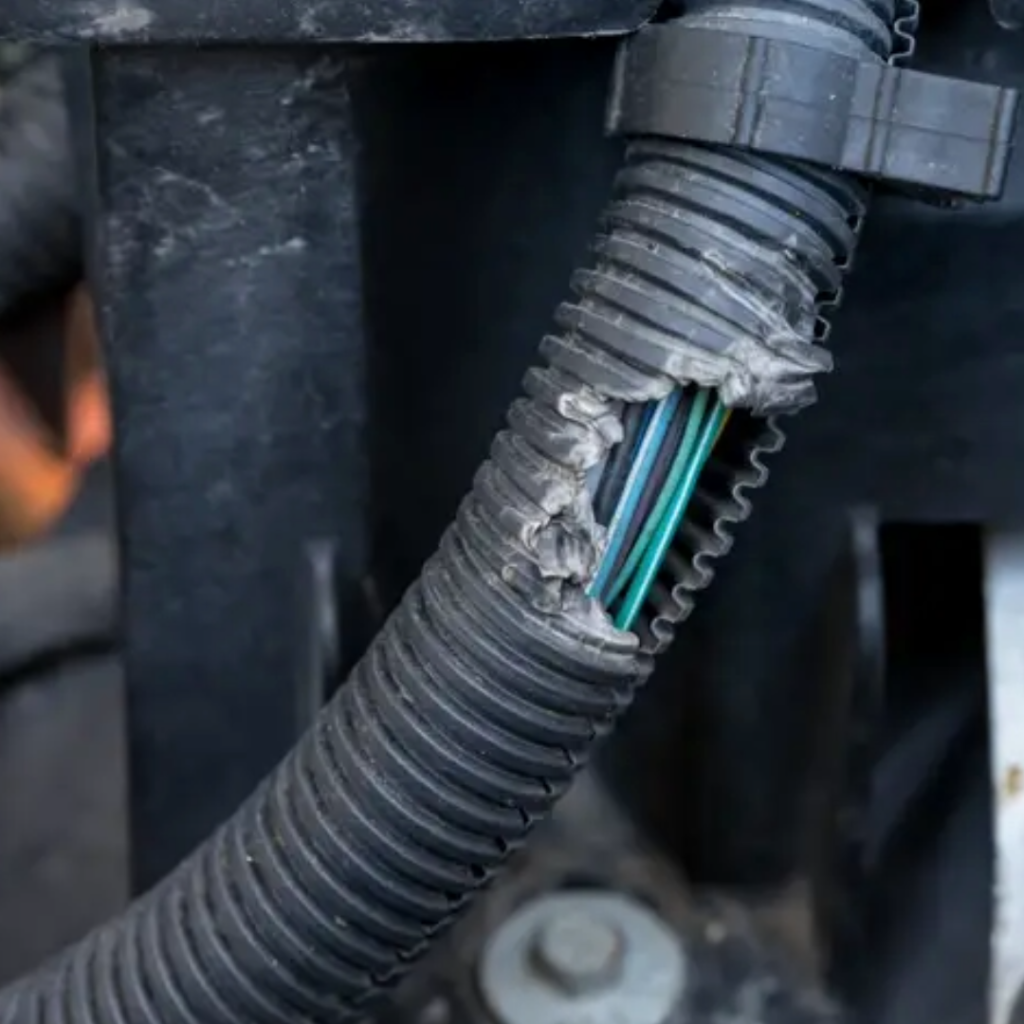
Mice, rats, squirrels and other rodents have a bad reputation for crawling under car hoods and chewing through engine wires. Depending on which wires they’ve chewed and how much damage they’ve caused, this type of behavior could result in expensive repairs for vehicle owners. If rodents have raided your car recently, the good news is that the repairs might be covered by your car insurance provider. Here’s what you need to know before you file a claim.
Does car insurance cover rodents chewing on wires?
Although the specifics vary by policy, some car insurance policies may cover rodent damage to car wiring. If your policy has comprehensive coverage, you may be able to file a claim for rodents chewing car wires on insurance. Comprehensive coverage is a type of coverage that can be added to your policy and covers vehicle damage that is not covered under collision coverage—that is, damage to your vehicle not caused by an accident.
Comprehensive provides coverage for vandalism, theft, weather damage, fire damage and damage caused by wild animals. Although you probably expect comprehensive coverage to cover damages caused by hitting a larger animal, like a deer, damages from animals of all types and sizes are typically covered, even if the damage is caused by rodents. Although a certified mechanic will need to confirm that rodents did cause the damage, the repairs for squirrels, mice or rats chewing car wires should be covered under a comprehensive claim.
Do I have comprehensive coverage?
Before you try to file a claim for rodents chewing car wires, you will first need to confirm you have comprehensive coverage. The quickest way to confirm this coverage is to check your policy declarations page. Some auto insurance companies call this coverage “comprehensive” while others may call it “other than collision” coverage. This coverage typically applies a deductible but not all carriers require one. If you are still unsure, you can always call your insurance agent to check.
About 80 percent of U.S. drivers carry comprehensive coverage, according to the Insurance Information Institute (Triple-I). While comprehensive is considered an optional coverage, it is typically required if you have a car loan or lease.
Why do rodents chew on car wires?
Pest control companies explain that rodents chew on car wires simply because they are always chewing. Rodent’s teeth are constantly growing and to keep them from getting too long or too sharp, rodents must continually chew to wear down their teeth.
For a long time, many people believed that vehicle wiring contained materials that rodents liked to chew, but this is just a myth. If a rodent has already set up shop in your hood, the reason they chew through your wires is purely convenience — the wires are right there and easily available to them. More recently, there’s been debate (and even class-action lawsuits) blaming vehicle manufacturers for rodents munching on car wires since several car companies have switched from petroleum-based to soy-based wiring to become more environmentally friendly.
Ways to protect your car from rodents
Although knowing your comprehensive coverage may pay for damage caused by rodents should give you peace of mind, it is easier to avoid the hassle of rodent damage in the first place. Luckily, there are steps you can take to help prevent rodents from crawling into your car’s hood and causing destruction.
- Park inside. If your home has one, always park your car inside a sealed garage. Make sure that you keep exterior doors shut as often as possible and do not keep trash bins, pet food, bird seed or other items that may attract rodents, inside the garage.
- Keep your car clean. Trash, food wrappers and other debris that could serve as a food source may draw rodents into your vehicle. If you regularly keep the interior and exterior clean, rodents are less likely to find your vehicle an attractive option for residence.
- Use repellants. If you cannot park inside or live near a wooded or grassy area where rodents are known to frequent, you might want to take precaution by utilizing rodent repellents such as moth balls, peppermint oil or other items with a strong scent. You can always check with a local pest control specialist and your mechanic to make sure a product is safe and effective for use. You can even purchase specialized tape to go around your wires that is coated in an offensive flavor that may deter further chewing.
- Move your car frequently. Rodents like to nest in enclosed spaces and your car hood may look like a great option if it is always sitting in the same place, especially during colder months. Even if you are working from home and do not drive very often, try to start your car on a regular basis to deter any unwanted animals from crawling inside.
To read the full article, click here.